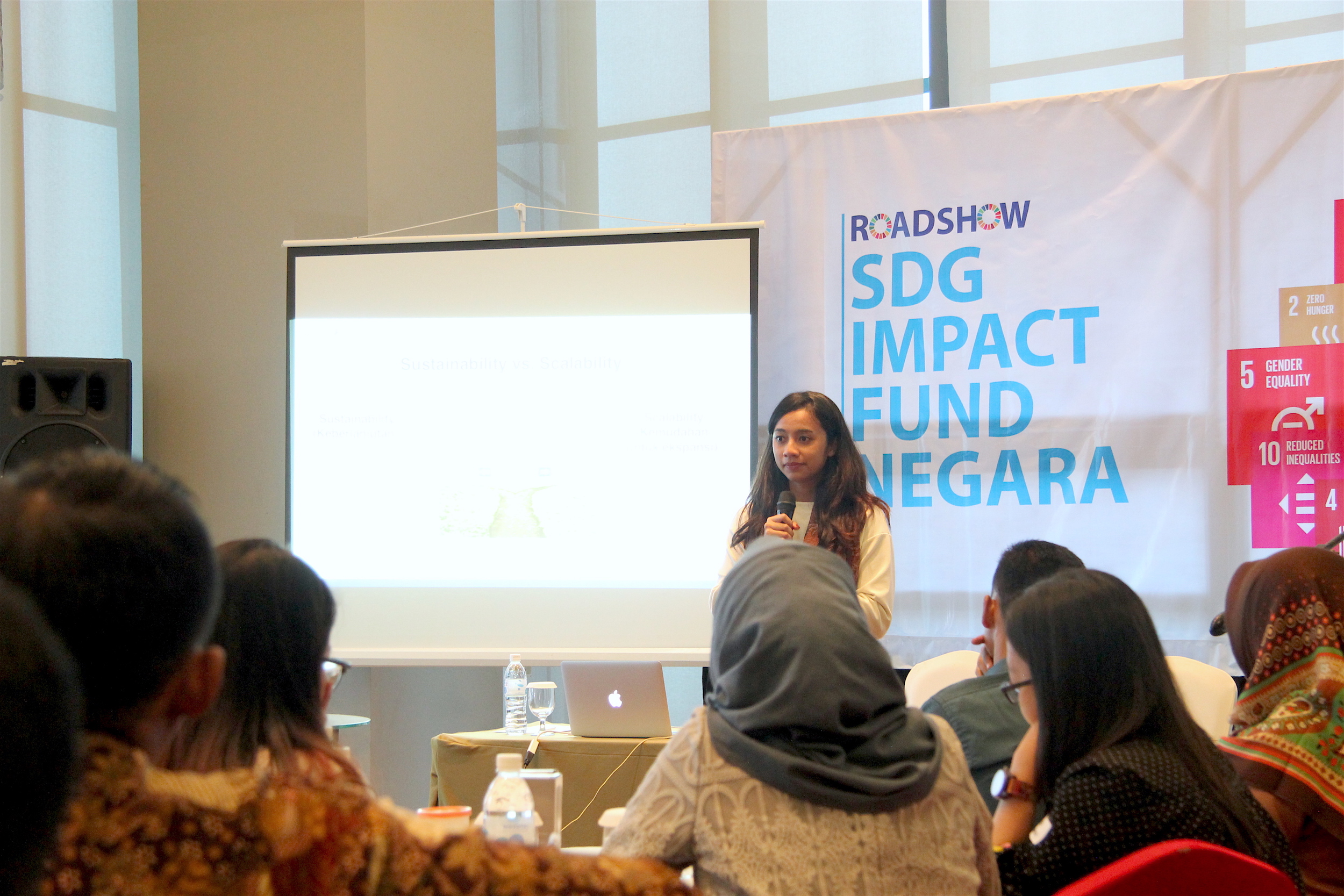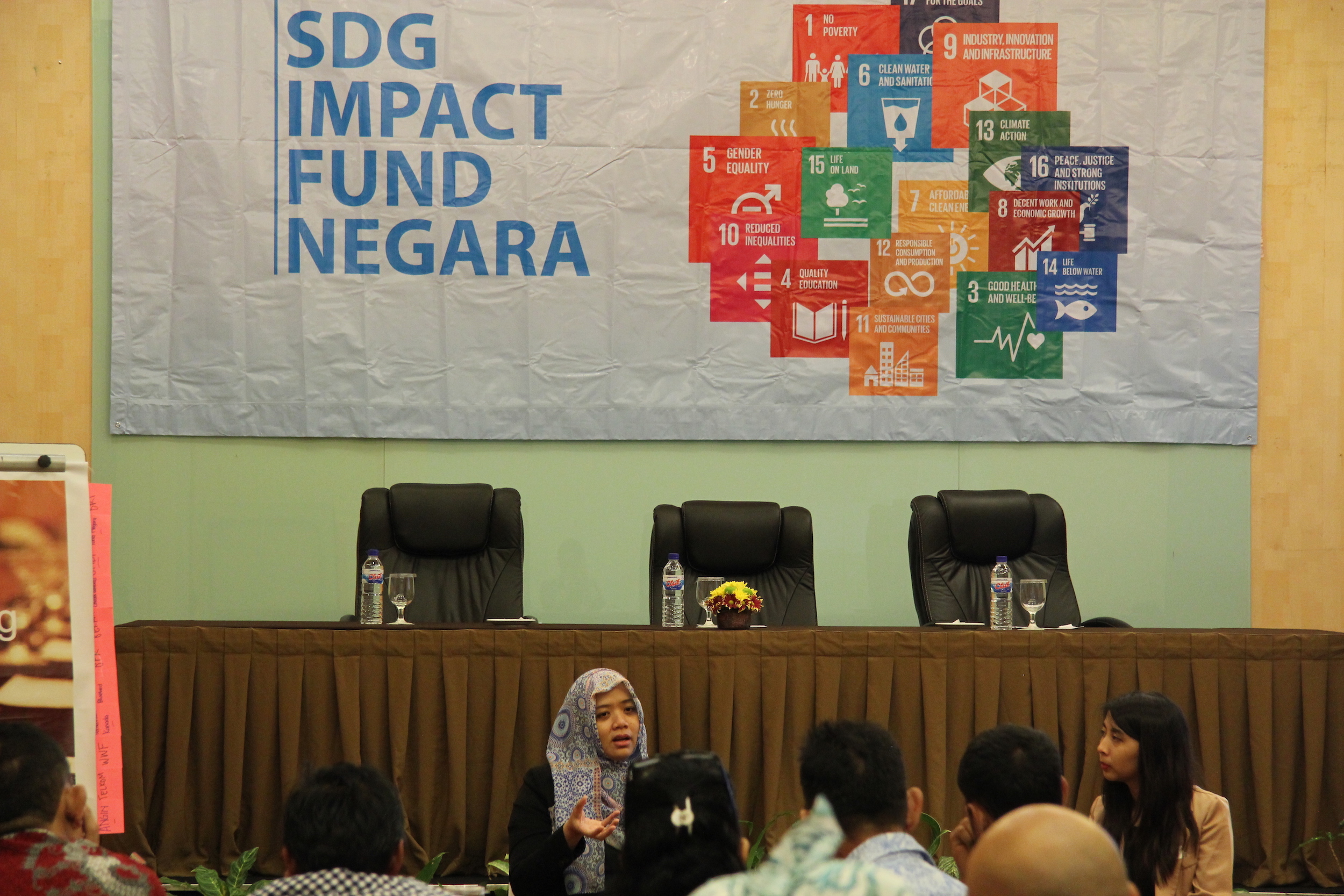ANGIN Women’s Spotlight series seeks to showcase a diverse array of inspiring women leaders and their stories and experiences in order to shed light on the unique experiences of women in business. We hope that both men and women can gain from these shared experiences, that these stories can inspire change, and that other young girls are motivated to become leaders as well.
Tell us a bit about yourself.
I’m Suriana from Lyvia. We make a variety of fish-based specialty sambal from Manado. Not only do we make sambal, but also abon (fish floss), which we sell in supermarkets such as Carrefour, Indomart, local supermarkets as well as souvenir shops.
What made you start this business?
I used to be a housewife, but saw that in Manado there is a need to create jobs for women. We try to make products in fish processing because there is such an abundance of fish in Manado. Most of our workers are housewives because their husbands’ salary is not enough; they usually help the family business with work. At the moment we have three workers, including myself, making sambal in the house.
What challenges do you see in women’s society in your area?
Most women are left by their husbands, and some have do not have a job. We want to empower them to make money. In most cases the husband’s salary is not enough for their lifestyles, so they work. For my future mission, I want to open a gift shop. We want to empower mothers to be able to produce their own products and sell in the store. That’s my mission ahead.
What are some fundraising obstacles you’ve faced?
Because we spend most of our money on renting the workplace, I have difficulties with financing the main production. Some of my friends also want to help with production, but have limited time so only help with what they can. I hope to increase production, but also need to prioritize fundraising.
Have you been running for a long time?
It’s been four years. We’ve been in operation since 2014, but at that time monthly sales were only at most 20-30 bottles. Now in 2018, we sell 1000 bottles per month. We want to raise our target again and expand our marketing network. The only constraint for us is our size. At the moment, we are still small-scale, although we have worked with the team at Alibaba. One of our obstacles is that we don’t have a BPOM license. Applying to BPOM is very expensive, and you must have a kitchen dedicated solely to production. As a result, the production kitchen and private kitchen needs to be differentiated. So our production is still conducted in my house — a kind of home industry.
What aspects do you feel you need help?
We want coaching for how we can prepare our products to reach the international market. In addition, our packaging is not yet refined to compete with international brands.
As a woman entrepreneur, do you face specific challenges in developing your enterprise?
Yes certainly, because our model is limited and I am solely in charge of managing the business. Besides being helped by one or two people, we have limited time for production. We must seek funding for both the production machinery and for a production factory.
Why is the empowerment of women important to you?
An example are a few of my friends; they are unmotivated and confused about what to do with their time. I started this business to help them become more productive and not feel burdened by their various problems. I want to teach them how we as women and housewives can be productive and engage in wage work while still taking care of the house.






